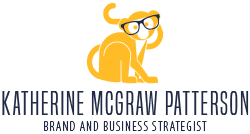The following is from a blog I wrote in 2008:
“Today on NPR, I was listening to an interview with tourism analyst Ralf Garrison of the Denver-based Advisory Group, Inc. He was discussing the downturn in the Ski Industry this year. Now, I’m not a skier, but he said something that immediately caught my attention. “Some resorts are characteristically better known than others. They have more BRAND EQUITY. They have more loyalty in the marketplace, and loyalty is being tested this year.” He went on to say that tourism experts call resorts with a lot of brand equity “destination magnets” – or, a magnet that pulls a guest, and the strength of that magnet is what pulls a guest over adversity.
Over the years, these resorts have undoubtedly spent millions on building that brand equity. They know that a valuable brand builds customer relationships that secure revenue by developing brand passion and loyalty. This year, they are cashing in their brand equity. In other words, in a market where hotel and condo bookings are down, resorts like Vail and Aspen – resorts with a lot of brand equity – are less likely to suffer significant losses.”
Switching back to 2019, have you ever wondered how companies survive (and even thrive) during economic downturns, or after PR disasters or corporate scandals like:
- The Tylenol recall of 1982.
- Coca-Cola’s “New Coke” debacle.
- Samsung’s explosive Galaxy Note 7s.
- The “fake news” accusations against CNN.
All of these brands bounced back from the damage to their reputations because of the investment they made over YEARS to build brand awareness, recognition, preference, and loyalty among their customers and potential customers. Essentially, years and years of good enabled them to weather the bad. People trusted that the issue at hand was a blip, an anomaly in how those companies did business. Consumers TRUSTED that those brands would right themselves and continue to deliver the products and services they’d come to expect.
So, how do small businesses and entrepreneurs create brand equity? After all, we don’t have the million-plus dollar marketing and PR budgets companies like ski resorts, Coca-Cola and Samsung have. In my book, brand equity for solopreneurs and small businesses boils down to two things: knowing what you offer and offering it consistently and without fail.
- Know What You Offer: Sometimes called your unique service proposition (USP) and sometimes just “what makes you different”, being intentional about defining and understanding your value and what sets you apart from the competition is the key to branding in any of its forms. This is a blend of the characteristics YOU think make you special and those aspects of your business that your CUSTOMER thinks are special.
- Be Consistent: In messaging, in quality, in delivery…consistency is everything. Brand equity is built upon consumer perception and experiences with your business. Build the loyalty that will carry you through the rough times by being reliable and dependable in all your interactions with your customers and potential customers. Every. Single. Time. Let them know they can count on YOU to deliver what you promise so that you can count on THEM to keep coming back.
We all have down times in our businesses, whether because of outside forces like the 2008 recession, or internal challenges like employee transitions or (in the case of solopreneurs) life changes. Being intentional and consistent about building customer loyalty during times of plenty helps you weather those lean times. Small business owners who take the time to create brand equity find loyal customers who are willing to come back again and again, sustaining their business. In effect, strong brand equity is like money in the bank.
If you’re struggling to define your brand and create that consistent delivery – of products, messaging, systems, pricing, or any other aspect of your business – schedule a 20 minute discovery call with me and let’s talk about how we can work together to bank some brand equity for your business!

